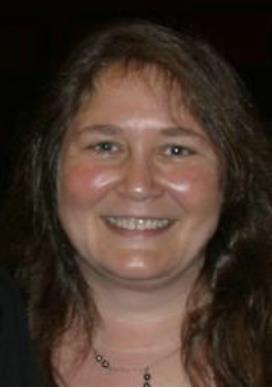American Psychological Association Division 50
Advocate’s Alcove

There is a lot to digest in terms of changes for advocacy related to the American Psychological Association (APA) and the APA Practice Organization (APAPO) since the last column. As of January 1, 2019, we now have the APA Services Inc. (APASI) operating as the new 501(c)6 entity for our major advocacy efforts, replacing APAPO. The first Chief Advocacy Officer for APA, Katherine B. McGuire, was named in mid-January. She has a B.S. in Agricultural Economics and International Development and an M.S. in International Agricultural Development from the University of Wyoming. She additionally completed a program for senior managers in government from the Harvard University Kennedy School of Government. And she comes to her role to help psychology with over 25 years of senior-level policy experience in government and the private sector. Her immediate task is merging the current government relations staff, who have typically worked in the directorate silos, into a single department. The end goal will be a unified voice for APA in conversation with government about all the varied things psychologists do and what psychology has to offer in solving our modern-day problems. Additionally, it is expected that McGuire will grow the psychology political action committee (Psychology PAC).
Also note that our new Chief Advocacy Officer will speak at the annual Practice Leadership Convention (PLC) which will take place March 9-12 in Washington, DC. The meeting theme will be Advocacy and Leadership. Topics for the meeting are designed to foster leaders who will be “champions, innovators, and decision-makers who shape billing and reimbursement codes, licensing regulations, health care policies, and new practice technologies.” Funding to attend the meeting, however, is limited and focuses mainly on supporting the presence of state psychological and territorial associations (SPTAs). There are also a number of early career and student groups supported, many of who are affiliated with the SPTAs. Non-SPTA federal advocacy coordinators (FACs) or other invitees must self-fund or seek other funding. Funding for attending the meeting has dwindled over the last five years with fewer and fewer divisions attending because of this lack of support. This is another side effect from the changing condition of APAPO. In terms of supporting division representation at the meeting, I repeatedly raised this issue as a concern in my general attendance and when I was on the Committee of State Leaders. I did this because colleagues from numerous divisions with clinical interests were falling away from the meeting due to lack of funding. More recently I emphasized this lack of divisional representation with the staff managing the meeting. They have been sensitive to this and hope that this will change in the future. Given the expected shift in advocacy being spread more evenly across the varied needs and interests of the association, I am cautiously optimistic for future years. In the meantime, I have done everything I can to encourage the powers that be to broadcast as much as possible from the meeting over the internet to facilitate broader participation. I will report back what happens to you in the summer column. Also, on the plus side, APA has provided some support for the division to be present to get the word out about our work with NAADAC on the transition of the certificate of proficiency to the MAC credential. Cynthia Moreno Tuohy, the NAADAC CEO, and I will offer a joint roundtable discussion at the meeting on the credential in this area.
At this time, the thrust of advocacy efforts from APA and APASI focus on legislation affecting healthcare reform, medical access and reimbursement, mental health parity, health information technology, insurance and managed care, hospitals and other health care delivery systems, and state advocacy. For items needing action, you may find updates and opportunities to participate in current advocacy efforts online at the CAPWIZ link (http://capwiz.com/apapractice/home/ ). Otherwise, for information summarizing recent actions, results, and other opportunities, you can visit the advocacy page on the APA website (see https://www.apa.org/advocacy/index.aspx ). At the top of the page, you can click a link to read regularly updated legislative information from the APASI Federal Action Network (FAN). FAN covers issues related to social justice, as well as professional matters and information items. For example, the January 2019 FAN noted that APA members sent over 35,000 messages were sent to Congress. There also were grant program announcements, loan repayment programs specific to addiction, fellowships, and other funding resources (see http://cqrcengage.com/apapolicy/file/TB8eHEK3Y1a/January%202019%20FAN.pdf).
As always, be in touch if you have questions about any of this information. If you are working an advocacy project related to addictions treatment, training, or policy, I am happy to discuss ideas or help you connect to other advocates or get engaged with advocacy activities at the local, state, and federal levels. Reach me at napiotrowski@yahoo.com.
Resource Information
APA Advocacy
https://www.apa.org/advocacy/index.aspx
CAPWIZ
http://capwiz.com/apapractice/home
January 2019 Federal Action Network
http://cqrcengage.com/apapolicy/file/TB8eHEK3Y1a/January%202019%20FAN.pdf).

Resources are available for those struggling with addiction and numerous effective treatments exist. Whether you are looking for help for yourself or a loved one, we encourage you to seek out help.